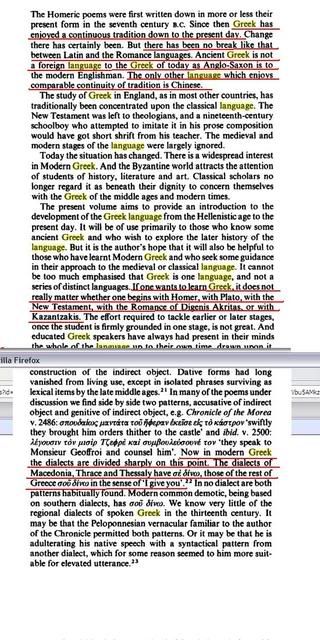- 12 Nov 2008 12:34
#1690011
Since I can't be arsed to read the entire thread I'll just make my own contributions.
- Macedonia is Greek. It's no wonder the Greek are concerned and are making a big deal of this issue. Why would they, as a state, want to lose their land in a slow fashion? Can't blame em.
- Greeks are not the same Greeks from ancient times. Try to fool yourselves and the ignorant ones around the whole world all you want, but you are not ancient Greeks. The best example would be if you look at the statues made in those times and compare them with the hairy daygoes that inhabit Greece today. The current Greeks are a mixture of Persians and some other societies (can't remember who, it's been a long time since I researched that).
- Citizens of Turkey are not Turks... duh. The 'pure' Turks are around Ozbekistan and Mongolia and stuff. They ain't a nation based on race but instead a nation based on what it labels as 'the Turkish people', in other words people of a nation where race does not have any effect whatsoever on the nationality (hard for Euros and Yanks to grasp; took me a while).
Hum... that is all for now as I resurrect this thread. Have a nice day and live in peace, etc.
Edit: Speeling errors.
- Macedonia is Greek. It's no wonder the Greek are concerned and are making a big deal of this issue. Why would they, as a state, want to lose their land in a slow fashion? Can't blame em.
- Greeks are not the same Greeks from ancient times. Try to fool yourselves and the ignorant ones around the whole world all you want, but you are not ancient Greeks. The best example would be if you look at the statues made in those times and compare them with the hairy daygoes that inhabit Greece today. The current Greeks are a mixture of Persians and some other societies (can't remember who, it's been a long time since I researched that).
- Citizens of Turkey are not Turks... duh. The 'pure' Turks are around Ozbekistan and Mongolia and stuff. They ain't a nation based on race but instead a nation based on what it labels as 'the Turkish people', in other words people of a nation where race does not have any effect whatsoever on the nationality (hard for Euros and Yanks to grasp; took me a while).
Hum... that is all for now as I resurrect this thread. Have a nice day and live in peace, etc.
Edit: Speeling errors.
Watermelons are not vegetables.




















 - By Tainari88
- By Tainari88